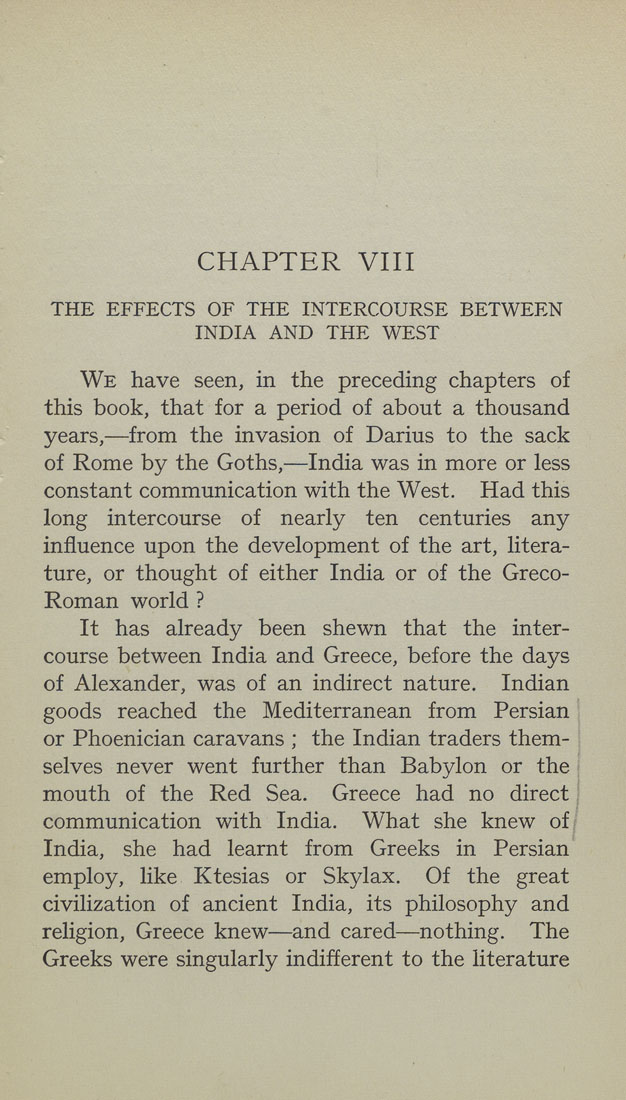CHAPTER VIII
THE EFFECTS OF THE INTERCOURSE BETWEEN
INDIA AND THE WEST
We have seen, in the preceding chapters of
this book, that for a period of about a thousand
years,—from the invasion of Darius to the sack
of Rome by the Goths,—India was in more or less
constant communication with the West. Had this
long intercourse of nearly ten centuries any
influence upon the development of the art, litera¬
ture, or thought of either India or of the Greco-
Roman world ?
It has already been shewn that the inter¬
course between India and Greece, before the days
of Alexander, was of an indirect nature. Indian
goods reached the Mediterranean from Persian i
or Phoenician caravans ; the Indian traders them- I
selves never went further than Babylon or the
mouth of the Red Sea. Greece had no direct
communication with India. What she knew of
India, she had learnt from Greeks in Persian
employ, like Ktesias or Skylax. Of the great
civilization of ancient India, its philosophy and
religion, Greece knew—and cared—nothing. The
Greeks were singularly indifferent to the literature
|








